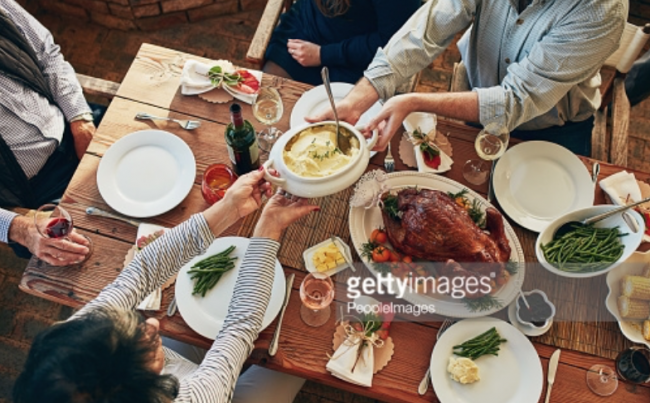Like many students, I spent several days at home over Thanksgiving break.
The time at home was a relaxing, fun and much-needed respite from schoolwork and a good chance to catch a breather before the hellish turmoil of finals.
I was reminded of the many comforts and luxuries of simply being home. I enjoyed seeing my dogs and my friends and my family — yes, even my parents. I was thankful to have a loving family to which I could return.
But, I was also reminded of the challenges that come with returning home for the holidays after a semester at university.
College has been a time of immense intellectual development for me, as it hopefully is for everyone.
I am not referring to some insidious “liberalization” process, but rather that I was exposed to more new people, books, ideas and viewpoints than before. That sort of intense exposure tends to lead to newfound personal beliefs and to a new way of seeing the world and its people.
Needless to say, when I returned home for the first time my freshman year, some of those beliefs clashed with the way many “grown-ups” back home saw the world.
I suspect when I returned home for that Thanksgiving break — and the much longer Christmas holiday — I felt more uncomfortable in my own hometown, and perhaps my own house, than I had before.
Some of us are lucky enough to hold political, religious and personal views similar to those of our parents, friends and extended family.
Others are not. As we prepare to finish finals and pack for the winter holiday, we face the looming possibility of disagreement with some of the people most dear to us during one of the most traditionally happy and festive times of the year.
I do not wish to underestimate the anxiety and even fear that returning home causes for some of us. I’ve experienced it in the past, and it’s not something to be taken lightly.
For queer students — as well as students with religious beliefs (or lack thereof) that clash with those of their family — the winter holiday is often not the most wonderful time of the year. Instead, it can be the most stressful one.
It goes without saying that your physical and mental well-being should determine how far you are willing to push disagreements, debates and arguments over the holiday season.
No matter what, take time for yourself and respect your limits. I can assure you freshman year Kenny would never have dreamed of writing an article like this.
Luckily, with time, I’ve become more open to disagreement and more tolerant even of what I view as rigid intolerance, shameless bigotry and poor reasoning in many of the people I interact with over the holidays.
I’ve come to understand the importance of being generous to those with whom we disagree. If we genuinely believe in the goodness of our convictions, then such generosity shouldn’t be too hard to come by.
So I urge you: if you can, speak up. Make the time to talk with your friends and loved ones about the things you’ve learned in school. Talk about Trump. Talk about foreign policy. Talk about whatever interests you and whatever you care about in this world.
Disagree with that extended family member from across the country you haven’t seen in two years. You probably won’t see him for another two years, so your window of opportunity for good conversation is small — as are, probably, your risks.
For those of us genuinely interested in lofty things like the “free interchange of ideas,” “discernment and discourse” and the notion that speaking respectfully to those we disagree with makes us and our world better, this is perhaps our best chance of the year to back up our lofty talk with actual, hard talk.
Don’t get me wrong: I do not mean to suggest that you and Uncle Bob are going to, as they say, “solve the world’s problems” over Christmas dinner.
Civil debate and discourse may be one component of the lifeblood of democracy, but democracy will not crumble if you choose not to bring up President Trump’s latest gaffe to a roomful of Trump-supporting family.
But here’s the thing: it might be fun — not to mention enlightening — if you do bring it up. Expressing and defending one’s opinion is empowering.
You might be surprised at just how proud and happy it can make you. It will also humble you and make you want to do better next time.
It doesn’t have to be dramatic; there is no need for things to descend into fisticuffs.
Breaking the prohibition against politics at the dinner table may actually make dinner more enjoyable. If it’s done properly, it will certainly make supper — in its manifest concern for the state of our country, our world and our fellow people — more civilized.









